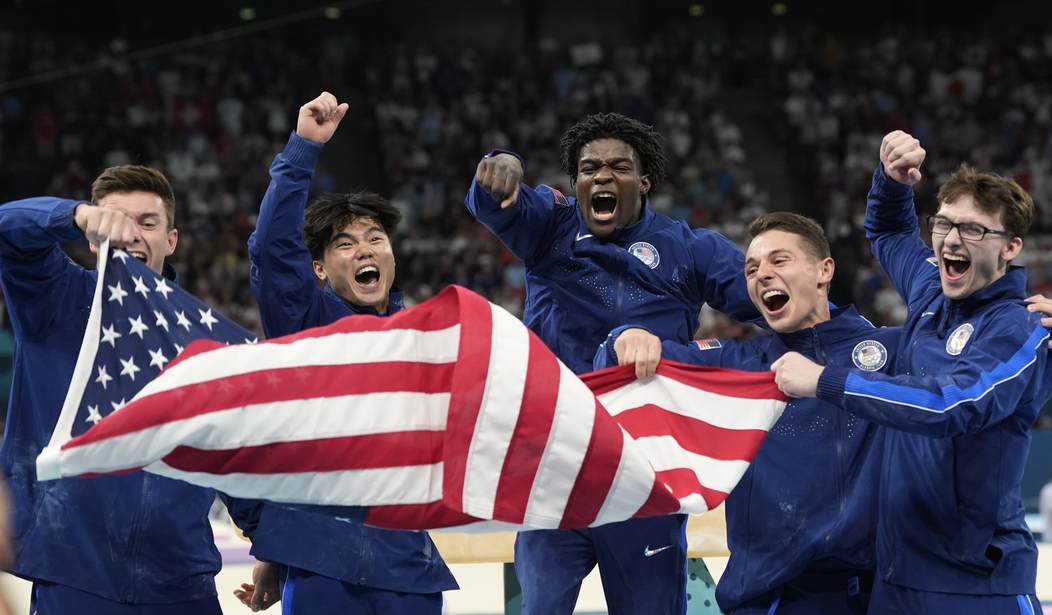Now that the Olympics are over, we don’t have to pretend to care about some of these sports. College football and postseason baseball are coming soon, so we have plenty of sports obsessions on the horizon.
For those athletes who won medals in Paris, it’s time to go home and reap the benefits that are coming to them. Of course, we know that many American Olympic medalists will come home to endorsements or prizes from their local communities. Some American medalists are professional athletes, while others are college students.
Additionally, the U.S. Olympic and Paralympic Committee pays medal winners for their triumphs. Gold medalists receive $37,500, while silver medalists get $22,500, and bronze medalists go home with $15,000.
The Wall Street Journal chronicled some of the bonuses that medalists get throughout the world. Every nation treats its heroes differently, and some of the fringe benefits that Olympic medalists receive outside the U.S. are fascinating.
Some nations don’t do anything for their medalists. The WSJ mentions the UK and Sweden among those countries, but surely those athletes get endorsement deals and private largesse. Contrast that with Hong Kong, which gives its gold medalists the equivalent of roughly $750,000 via what the WSJ calls a “funding scheme.” I’m picturing something similar to an American NIL (name, image, and likeness) collective for college athletes. Other nations reward their medalists in unique ways.
“In South Korea, Olympic medalists are exempted from compulsory military service,” the WSJ notes. “In Poland, winners get an investment grade diamond and a painting by ‘respected and talented Polish artists.’”
The government of Kazakhstan lavishes apartments on its medal winners: one bedroom for a bronze, two bedrooms for a silver, and three bedrooms for a gold. Government housing doesn’t sound like an exciting prize, but this year’s big Kazakh winner received even more goodies.
“Yeldos Smetov, who won judo gold for Kazakhstan here, also received a herd of 100 thoroughbred horses, a Lexus, and the guarantee of a smooth ride no matter his method of transportation: The local administration laid new asphalt on the road to his house,” reports the WSJ.
Recommended: Even Sports Media Is Getting in on the Whitewashing of Tim Walz
But the biggest beneficiary of Olympic gold might be Filipino gymnastics medalist Carlos Yulo, who is the subject of the WSJ’s story. Yulo’s two gold medals in Paris tripled the country’s all-time gold medal count, and it might as well have won him the lottery:
At home, he will get a congressional medal and at least $350,000 from the government. Plus, a free set of headlights and fog lights. Also, free wedding photography, haircuts and furniture. And more food than he could eat in an entire lifetime. One local real-estate developer awarded him a fully furnished, three-bedroom apartment in Manila. Not to be outdone, another real-estate company offered him a house.
“I am happy that I won a gold medal,” Yulo said, “and also a house.”
In the words of the late Billy Mays, “But wait — there’s more.”
Yulo will probably never have to cook again with all the free food companies are offering him. He now has access to lifetime supplies of ramen, mac and cheese, coffee, ice cream, and grilled chicken. A delivery service has offered him a lifetime of free delivery, and a buffet restaurant has offered him free all-you-can-eat buffets. At only 24, Yulo could take advantage of this goodwill for decades.
Oh, and he can take advantage of free colonoscopies, courtesy of a doctor who says he “would gladly do this for other Olympic winners from the Philippines.” Yay!
These athletes work hard for a shot at Olympic glory, so good for them. As long as they haven’t cheated to win or done anything else unethical, they deserve a little largesse for all their rigorous training.










Join the conversation as a VIP Member